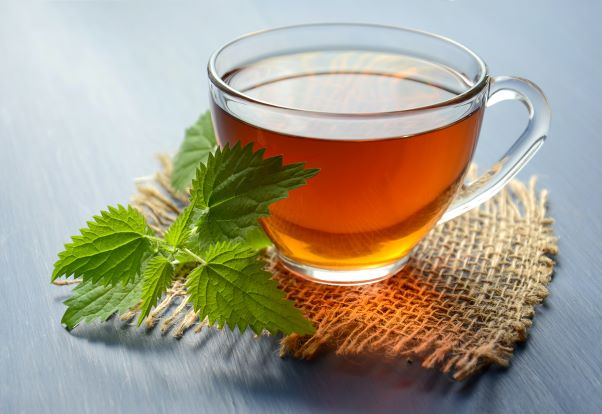What is fatty liver; its causes, food to avoid & food good for liver

Fatty liver, also known as hepatic steatosis, is a condition where excessive fat accumulates in the liver cells. A certain amount of fat in the liver is normal, but when the percentage of fat exceeds 5-10% of the liver’s weight, it is considered fatty liver disease. So, read on to know what is fatty liver; its causes, food to avoid & food good for liver.
Fatty liver can be caused by various factors, including excessive alcohol consumption, obesity, metabolic syndrome, type 2 diabetes, rapid weight loss, and genetics. The condition can lead to inflammation and damage to liver cells, which may progress to more serious liver diseases such as cirrhosis and liver cancer if left untreated.
Causes of Fatty Liver:
There are several causes of fatty liver. The causes include:
i. Excessive alcohol consumption can lead to alcoholic fatty liver disease.
ii. Obesity and Metabolic Syndrome: Obesity and metabolic syndrome, which includes high blood pressure, high blood sugar, and high cholesterol, can increase the risk of developing fatty liver disease.
iii. Type 2 Diabetes: People with type 2 diabetes are at higher risk of developing fatty liver disease.
iv. Rapid Weight Loss: Losing weight too quickly can cause the liver to release too many fatty acids, leading to fatty liver disease.
v. Genetics: Some people are genetically predisposed to developing fatty liver disease.
Foods that cause Fatty Liver
Some of the common foods that cause fatty liver disease are:
i. Sugar and High-Fructose Corn Syrup
Sugar and high-fructose corn syrup (HFCS) are found in many processed foods and drinks. These substances are known to be particularly damaging to the liver when consumed in large quantities. When you consume too much sugar or HFCS, your liver cannot process it all, and the excess is turned into fat, which can build up in your liver over time. This process can lead to the development of fatty liver disease.
ii. Processed Foods
Processed foods are often high in unhealthy fats, sugar, and salt. These foods are often stripped of their nutrients during the manufacturing process, leaving behind a calorie-dense product that provides little nutritional value. Consuming large amounts of processed foods has been linked to an increased risk of developing fatty liver disease.
iii. Fried Food:
Fried foods, such as French fries and fried chicken, are often high in unhealthy fats and calories. These types of fats are particularly harmful to the liver and can contribute to the development of fatty liver disease. Additionally, the high calorie content of these foods can contribute to weight gain, which is another risk factor for fatty liver disease.
iv. Alcohol
Excessive alcohol consumption is a leading cause of fatty liver disease. Alcohol is metabolized in the liver, and excessive alcohol consumption can overwhelm the liver’s ability to process it. Over time, this can lead to liver damage and the development of fatty liver disease.
v. Saturated and Trans Fats
Saturated and trans fats are found in many processed foods, such as baked goods, fast food, and fried foods. These types of fats are particularly harmful to the liver and can contribute to the development of fatty liver disease. It’s important to limit your intake of these types of fats and focus on consuming healthy fats, such as those found in nuts, seeds, and fatty fish.
Fatty liver disease is a growing concern worldwide, and poor dietary choices are a major contributing factor. Foods high in sugar, high-fructose corn syrup, processed foods, fried foods, and alcohol can all contribute to the development of fatty liver disease. It’s important to make healthy food choices and limit your intake of these types of foods to reduce your risk of developing fatty liver disease. A diet rich in whole foods, fruits, vegetables, and lean protein sources can help promote liver health and reduce the risk of developing liver diseases.
Foods that promote a Healthy Liver:
A balanced and healthy diet that is rich in whole foods, fruits, vegetables, and lean protein sources can help promote liver health and reduce the risk of developing liver diseases. It’s also important to limit the intake of processed foods, sugary drinks, and alcohol, as they can contribute to liver damage and increase the risk of developing liver disease.
i. Whole Grains: Whole grains, such as brown rice and whole wheat bread, are high in fiber, which can help reduce the amount of fat stored in the liver.
ii. Lean Protein: Lean protein sources, such as chicken, fish, and tofu, can help promote liver health by providing the body with essential nutrients.
iii. Nuts and Seeds: Nuts and seeds are high in healthy fats, which can help reduce inflammation in the liver and promote liver health. Some good options include walnuts, almonds, chia seeds, and flaxseeds.
iv. Green Tea: Green tea contains catechins, which have been shown to help reduce liver fat.
v. Coffee: Coffee consumption has been linked to a reduced risk of developing liver disease, including fatty liver disease.
vi. Olive Oil: Olive oil contains healthy fats and antioxidants, which can help reduce inflammation in the liver and promote liver health.
vii. Fruits and Vegetables: Fruits and vegetables are high in antioxidants, which can help reduce inflammation in the liver and promote liver health. Some of the best options include leafy greens, berries, citrus fruits, and cruciferous vegetables like broccoli and cauliflower. Fruits and vegetables are high in antioxidants, which can help reduce inflammation in the liver and promote liver health.
A 360-degree overview
Fatty liver disease is a common condition that can be caused by a variety of factors, including excess alcohol consumption, obesity, and genetics. Certain foods, such as sugar, processed foods, fried foods, and alcohol, can contribute to fatty liver disease, while other foods, such as fruits and vegetables, whole grains, lean protein, nuts and seeds, green tea, coffee, and olive oil, can promote liver health. By making healthy lifestyle choices and incorporating liver-friendly foods into your diet, you can help reduce your risk of developing fatty liver disease and promote overall liver health.
(The content of this article is for informational purpose only. It cannot be a substitute for advice from a medical practitioner. Read DISCLAIMER for more…)








